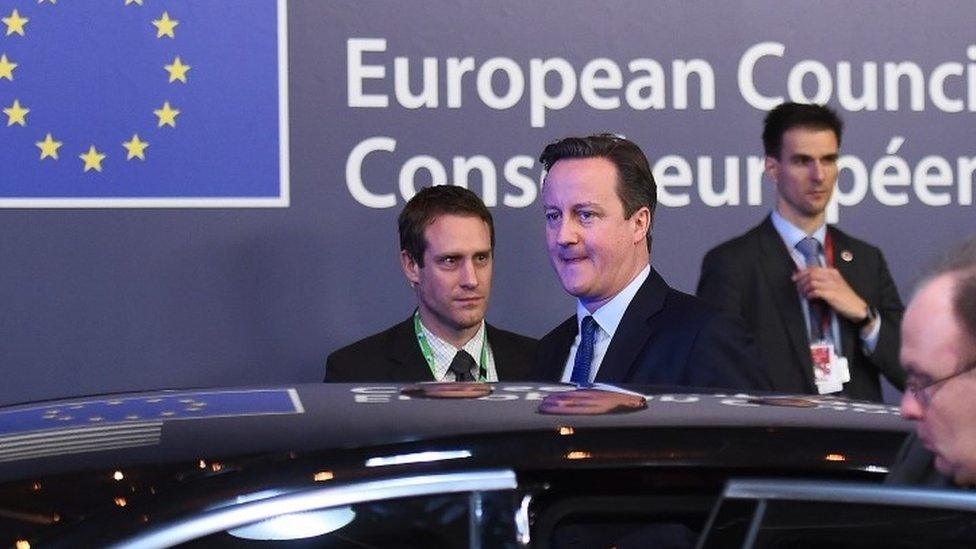EU referendum: Cameron in talks over migration 'brake'
- Published
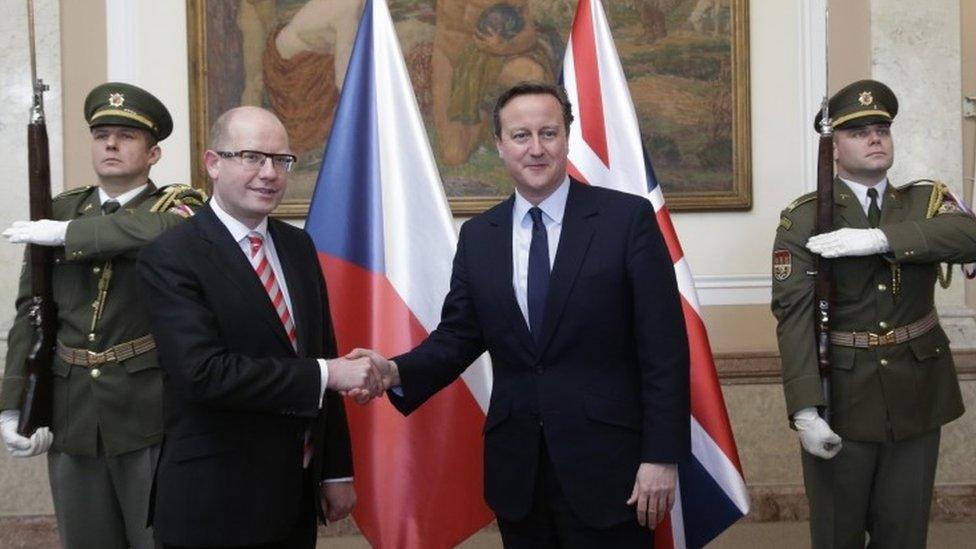
Czech PM Bohuslav Sobotka greets David Cameron
David Cameron has discussed applying an "emergency brake" to EU immigration, in a meeting with his Czech counterpart, as he seeks a deal on his EU reforms.
Prime Minister Bohuslav Sobotka rejected Mr Cameron's proposals for a four-year ban on in-work benefits.
But Mr Sobotka said allowing states to close borders temporarily - as a "brake" - could be considered if welfare systems were under pressure.
Mr Cameron said he still wanted a benefit ban but welcomed other options.
The prime minister, who held talks with Mr Sobotka in Prague, is hoping to get a deal on his four reform demands at a summit next month so he can call an in/out referendum on whether the UK should stay in the European Union.
But the welfare element of his proposals has been resisted by Central European member states.
'Immense pressure'
The "emergency brake" idea has been floated before - but it is not clear how it would work in practice.
It could trigger temporary controls on EU migration if the flow is considered "destabilising" but it would not be under the control of the British prime minister and may need the agreement of all EU member states to invoke it.
Mr Sobotka said he agreed with most of the UK's reform agenda but made it clear in a joint news conference with Mr Cameron that he would not accept "discriminatory" measures.
But he added: "We discussed possible alternatives forwarded on this issue.
"The UK has introduced their proposal... we discussed other possible alternatives to meet the same objective, ie make it possible for the UK government to respond to the mass influx of workers.
"This option involves giving a member state the possibility of an emergency brake if there is immense pressure on its welfare system."
'Goodwill'
He added: "It is very important for us that any solution that is adopted on a European level does not discriminate."
Mr Cameron said the benefit ban was still "on the table" but he "welcomed" alternatives that would have a similar impact on migration.
He said he would not rush an agreement if it was not "available" in time for the Brussels summit on 18 February.
But he said he thought a deal was possible by then, pointing to the "goodwill" of other states.
"I firmly believe there is a pathway to an agreement. I am confident that with the help of European partners and with goodwill we will be able to get there and find mutually satisfactory conclusions."
In an opinion piece for Czech newspaper Hospodarske Noviny, Mr Cameron said he valued the contributions Czechs had made to British life, including Czech-born playwright Tom Stoppard and Arsenal goalkeeper Petr Cech, and he believed in the principle of free movement.
But he added: "Britain does face some particular challenges due to the scale and speed of immigration in our communities."
He said the British welfare system was an "unnatural draw for people to come to our country".
"For example, because of Britain's generous in-work benefits system, a graduate from the Czech Republic could be financially better off stacking shelves in a supermarket in Britain rather than undertaking skilled work in the Czech Republic.
"That doesn't make sense for Britain or for the Czech Republic."

David Cameron's four main aims for renegotiation
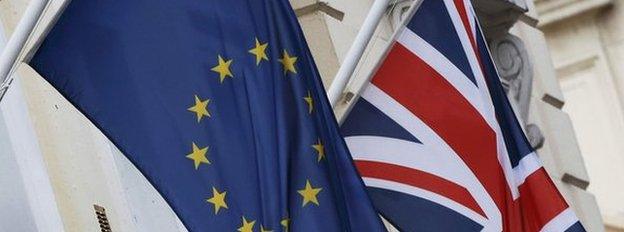
Economic governance: Securing an explicit recognition that the euro is not the only currency of the European Union, to ensure countries outside the eurozone are not disadvantaged. The UK wants safeguards that it will not have to contribute to eurozone bailouts
Competitiveness: Setting a target for the reduction of the "burden" of excessive regulation and extending the single market
Immigration: Restricting access to in-work and out-of-work benefits to EU migrants. Specifically, ministers want to stop those coming to the UK from claiming certain benefits until they have been resident for four years
Sovereignty: Allowing Britain to opt out from further political integration. Giving greater powers to national parliaments to block EU legislation
Referendum timeline: What will happen when?
Guide: All you need to know about the referendum
- Published22 January 2016
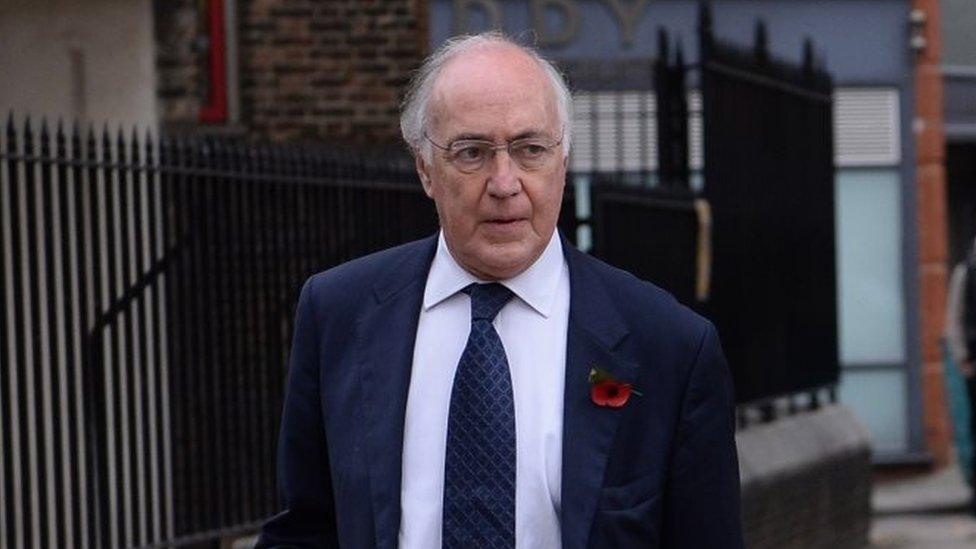
- Published22 January 2016

- Published21 January 2016
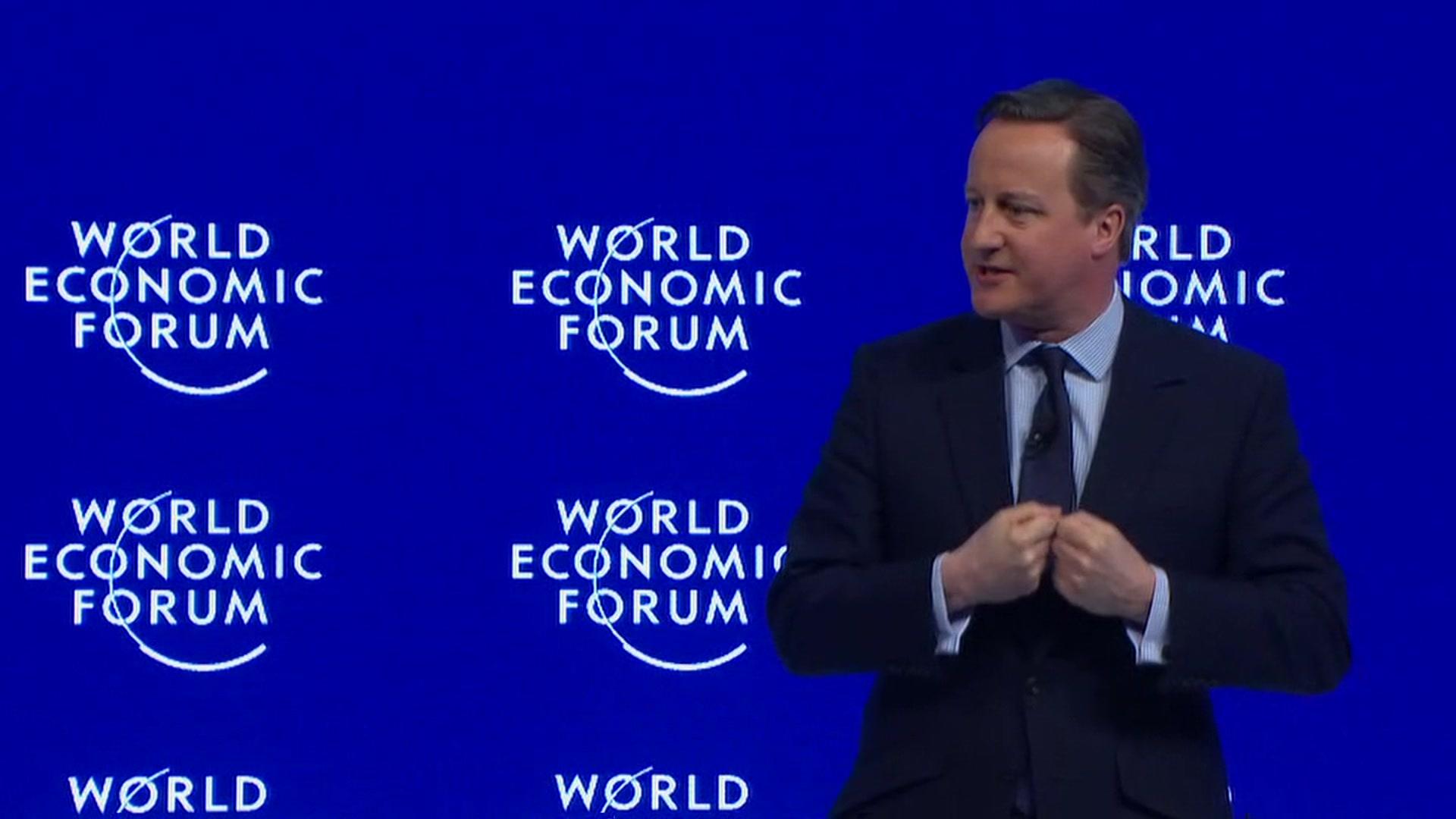
- Published21 January 2016
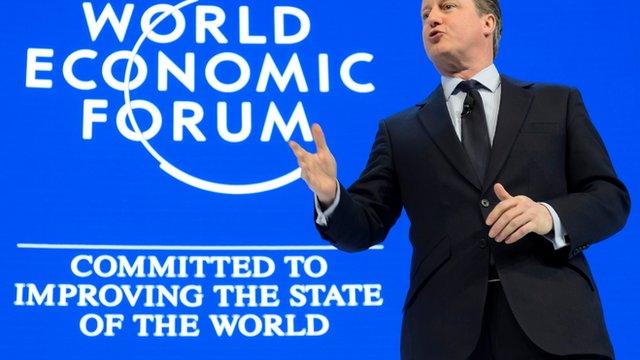
- Published21 January 2016
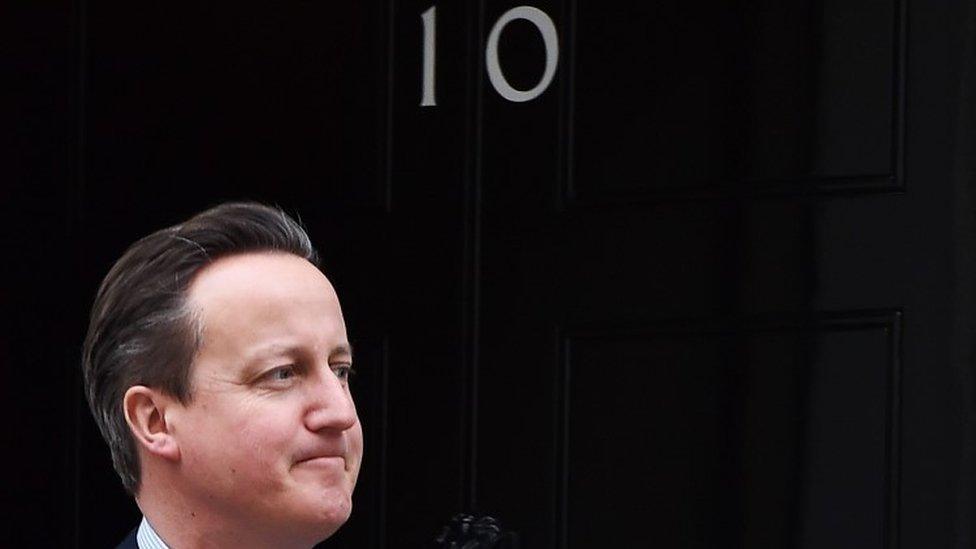
- Published20 January 2016
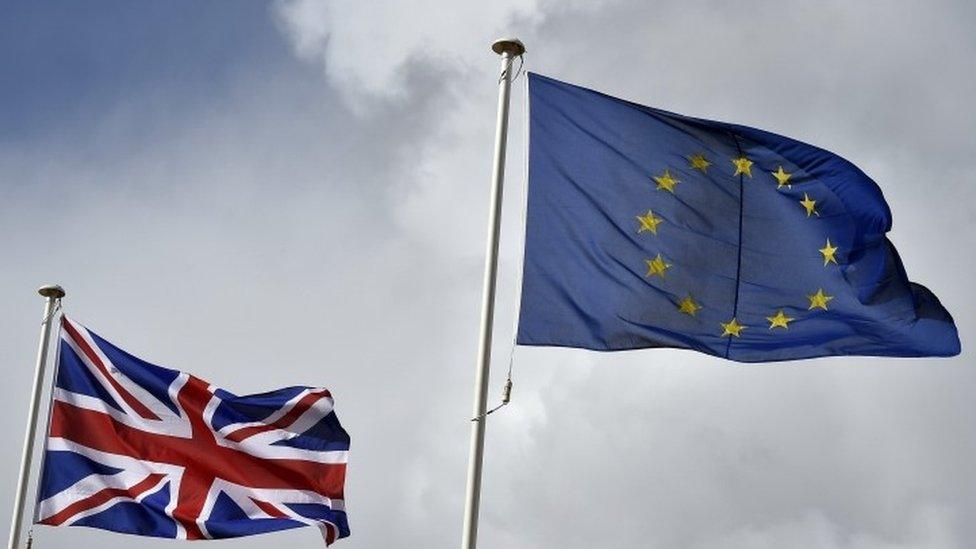
- Published19 January 2016
